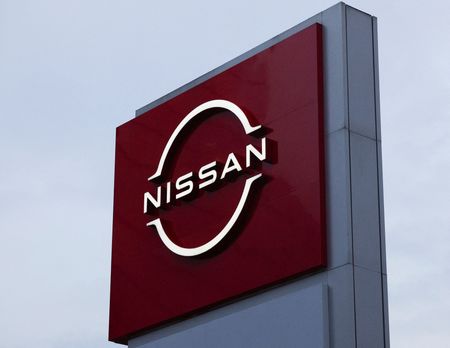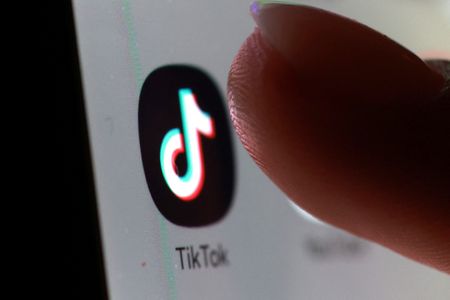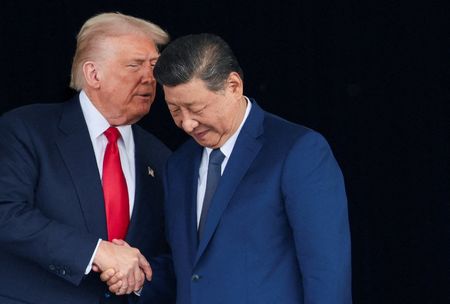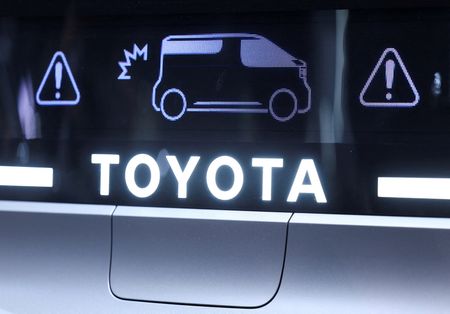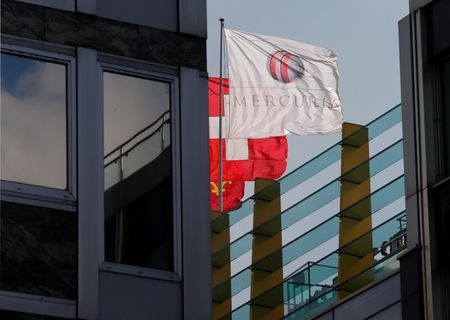TOKYO (Reuters) -Nissan Motor said on Thursday it expects to book a 275 billion yen ($1.82 billion) in annual operating losses due to the impact of U.S. tariffs and warned that supply chain risks would be the biggest headwind in its fiscal second half.
The automaker expected the hit from tariffs would be 25 billion yen smaller in the second half of the fiscal year to March 2026, as Japan reached a trade deal with the U.S. that has lowered levies on Japanese cars to 15%.
Japan’s third-largest automaker has also put in place mitigation measures to reduce the impact of the tariffs, Nissan Chief Financial Officer Jeremie Papin told reporters, without elaborating.
Papin, however, cautioned that its free cash flow would not be positive in the full year due to various supply chain risks.
CONCERNS MOUNT OVER CHIP SUPPLY, TRADE TENSIONS
Automakers worldwide are scrambling to secure chips and review inventories as concerns mount over a deepening supply squeeze linked to Dutch chipmaker Nexperia, while trade tensions between China and the U.S. have threatened to disrupt supply of rare earth magnets, a key component used in various car parts.
Among supply risks, “one is the Nexperia chip and the restrictions on exports and the second one is linked to a fire, an aluminum supply issue in North America. Both are not specific to Nissan,” Papin said.
Nissan said its full-year outlook for net income remained undetermined.
The company said its first-half loss would be sharply narrowed from its previous forecast thanks to lower costs relating to emissions regulations and cost savings.
It now expects an operating loss of 30 billion yen in the first half of the financial year through September, against a previous estimated loss of 180 billion yen.
Nissan will release second-quarter financial results on November 6.
($1 = 150.7800 yen)
(Reporting by David Dolan and Daniel Leussink;Writing by Miyoung Kim; Editing by Bernadette Baum and Joe Bavier)

